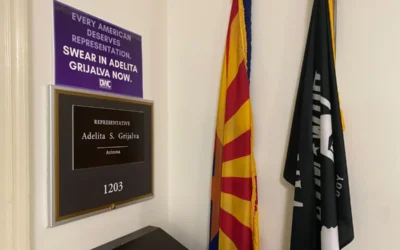
The Biden administration has been putting pressure on companies across multiple sectors to be more transparent with consumers. (Photo via Shutterstock)
Have you ever signed up for cable or satellite service thinking you’d pay one price, only to have hidden junk fees added on at checkout?
If so, here’s some good news: These types of fees, which have drawn criticism in recent years, could soon be a thing of the past.
The Biden administration on Tuesday proposed a new regulation that would require cable companies and satellite providers to show the full price of their services “upfront”—meaning hidden fees would no longer be snuck in at checkout.
A Consumer Reports analysis found that these types of fees add, on average, 24% to cable bills and can cost consumers an extra $450 a year.
“No one likes surprises on their bill,” Jessica Rosenworcel, chairwoman of the Federal Communications Commission (FCC), the agency behind the proposal, said in a statement. “The advertised price for a service should be the price you pay when your bill arrives, rather than hide a bunch of junk fees that are separate from the top-line service price.”
The FCC’s proposed regulation comes as the Biden administration has spent months pressuring airlines, banks, ticket vendors, and other companies to stop charging consumers hidden fees, or at the very least, make them more transparent.
“My administration’s top priority is lowering the cost of living for the middle class, and that includes cracking down on companies’ use of junk fees to hide true costs from families, who end up paying more as a result,” President Biden said in a statement issued following the FCC’s announcement.
Those efforts have notched some early successes.
Ticketmaster, SeatGeek, and other major ticketing companies announced last week that they’ve agreed to institute “all-in” pricing, meaning that consumers will no longer be surprised by additional fees at checkout. This was at least partially prompted by months of pressure from the Biden administration and elected officials across the country.
Biden and his administration have also worked broadly to increase transparency between companies and consumers since taking office.
The FCC proposed a rule last November to require internet companies to publish prices, data allowances, and other important information on “easy-to-understand labels” for consumers as they compare services. That rule has yet to go into effect.
Earlier this year, the Federal Trade Commission (FTC) proposed a rule to ban non-compete clauses in employment contracts. Employers often force their workers to sign these clauses, which effectively bar them from starting their own business or finding a new job in the same field within a certain area or timeframe after leaving their current job.
An estimated 30 million American workers are currently affected by non-compete clauses, and they have been shown to lower workers’ pay and restrict their opportunity and mobility. The Federal Trade Commission estimates that banning non-competes would increase wages by $300 billion a year.
The FTC is ultimately expected to vote next year on whether to ban non-compete agreements.
Most recently, on Wednesday, the FTC announced that it was suing Amazon, alleging that the company tricked millions of people into signing up for Prime service through “deceptive user interface designs.” The complaint also alleges that Amazon tried to keep users subscribed—even when they wanted to cancel their memberships—by making it exceedingly difficult to unsubscribe.

SNAP benefits resume, but new work requirements put 124K Arizona recipients at risk
WASHINGTON – Federal food benefits have been flowing again since the government shutdown ended last week. But for millions of recipients nationwide...

Trump wants sedition trial of Sen. Kelly, other vets who urged defiance of illegal orders
WASHINGTON – President Donald Trump on Thursday called Arizona Sen. Mark Kelly and five other Democrats “traitors” who should face trial for...

Adelita Grijalva sworn in as the House’s newest member, paving the way for an Epstein files vote
WASHINGTON (AP) — Democrat Adelita Grijalva was sworn in as the newest member of Congress on Wednesday, more than seven weeks after she won a...

Epstein email says Trump ‘knew about the girls,’ but White House says release is a Democratic smear
WASHINGTON (AP) — The sex-offending financier Jeffrey Epstein wrote in a 2019 email to a journalist that Donald Trump “knew about the girls,"...




